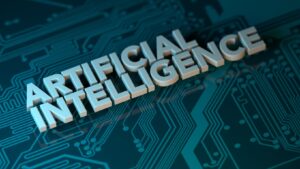Artificial Intelligence (AI) has swiftly moved from a futuristic idea to an integral part of our daily lives. From enhancing productivity in industries to personalizing user experiences, AI’s capabilities are vast and varied. This technology’s adaptability allows it to surface in almost every sector imaginable, revolutionizing how tasks are approached and completed.
10 Uses Of Artificial Intelligence

Artificial Intelligence (AI) refers to the simulation of human intelligence in machines that are programmed to learn and make decisions. These intelligent machines can perform tasks that typically require human intelligence, such as visual perception, speech recognition, decision-making, and language translation. AI systems process large amounts of data and identify patterns, enabling them to make informed decisions without human intervention. This technology underpins numerous applications, from autonomous vehicles navigating traffic to virtual assistants managing daily tasks. By integrating AI, machines become capable of handling complex processes, adjusting to new inputs, and improving over time through machine learning, a subset of AI where algorithms evolve through exposure to new data. As a cornerstone of modern technological advancement, AI enhances efficiency and innovation across various sectors.
Popular Uses of Artificial Intelligence
Artificial Intelligence (AI) reshapes various sectors, demonstrating its functionality ranging from mundane tasks to complex decision-making processes. Among its most popular applications are:

- Healthcare Diagnosis and Treatment – AI systems analyze medical data and images, aiding in quicker, more accurate diagnoses and treatment plans.
- Voice-Activated Assistants – Devices like Amazon’s Alexa and Apple’s Siri use AI to respond to user commands, automate tasks, and personalize interactions.
- Autonomous Vehicles – AI powers self-driving cars, enhancing road safety and efficiency by processing traffic data and sensory inputs in real-time.
- Fraud Detection – Financial institutions use AI to monitor transactions, detect unusual patterns, and prevent fraud, securing both user assets and institutional operations.
- Personalized Marketing – AI analyzes consumer behavior to deliver targeted advertising, optimizing marketing strategies and enhancing customer engagement.
- Supply Chain Optimization – In logistics, AI forecasts demand, manages inventory, and routes deliveries, significantly improving efficiency and reducing operational costs.
- Smart Home Devices – AI underpins systems that control lighting, temperature, and security in homes, adapting to homeowner preferences autonomously.
- Manufacturing Automation – AI enhances precision and speed in production lines, reducing errors and increasing output in manufacturing settings.
- Content Recommendations – Streaming services like Netflix employ AI to suggest content based on viewing history, increasing user satisfaction and stickiness.
- Educational Tools – AI supports adaptive learning platforms that modify content based on student performance, tailoring education to individual learning paces.
Emerging Trends in AI Utilization
The landscape of AI utilization constantly evolves, introducing groundbreaking trends that redefine industry standards and consumer interactions. One notable trend is the development of AI in predictive analytics, which businesses leverage to foresee market changes and consumer behaviors, enhancing strategic planning and operational efficiency. Another significant advancement involves AI-driven automation in cybersecurity, where systems proactively identify and mitigate threats, thus safeguarding digital assets more effectively.

Additionally, AI’s integration into environmental management marks a transformative trend, utilizing algorithms to optimize energy use and reduce emissions in various sectors. This application not only promotes sustainability but also aligns with global environmental goals. Furthermore, the enhancement of natural language processing (NLP) technology enables more intuitive human-computer interactions, improving service automation and customer support by understanding and processing human language with remarkable accuracy.
Ethical Considerations of AI
While AI’s integration enhances efficiency and innovation across industries, its ethical implications require careful consideration. Addressing potential biases is critical, as AI systems, if left unchecked, can perpetuate existing prejudices found in their training data. Companies developing AI technologies embrace rigorous testing and data oversight to mitigate these issues. They also evaluate the impacts of AI decisions, especially when used in critical areas such as healthcare and criminal justice, where inaccuracies could have significant consequences.
Furthermore, the security of AI systems is paramount, considering the risks of data breaches or misuse. Protecting against such vulnerabilities involves constant updates and monitoring, ensuring that AI applications uphold the highest standards of data integrity and privacy. Transparency remains another critical ethical pillar, demanding that AI operations be understandable and accountable to users. This transparency builds trust and facilitates easier identification and correction of any deviations from ethical norms.



